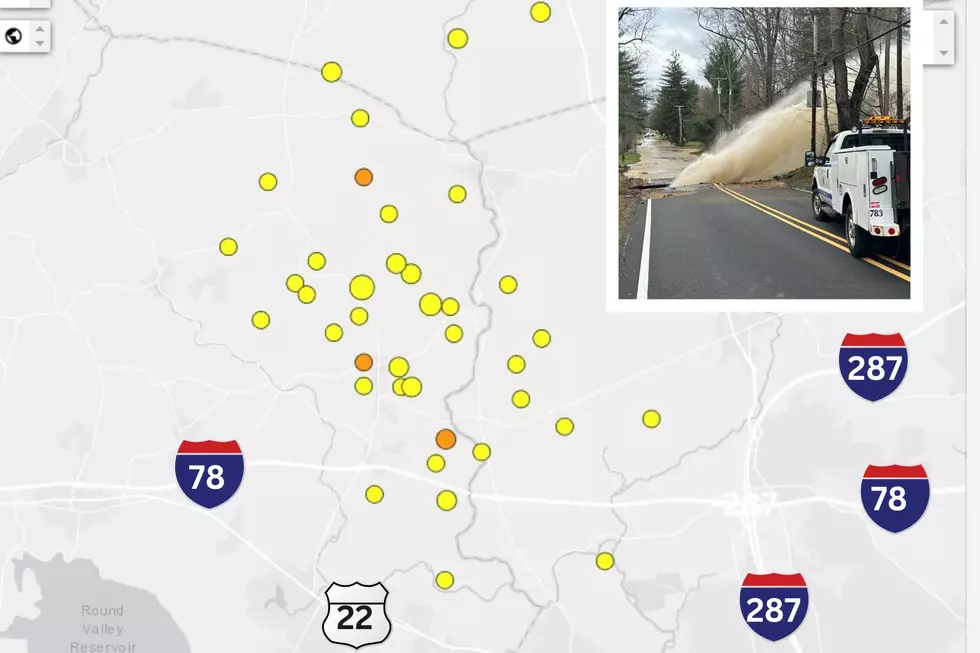
What Rutgers will, and won’t do about illegal immigrant students
Rutgers University newly said this week it will "steadfastly protect the privacy of all our students" -- even those in the country illegally.
The university pledged not to inquire into students' immigration status under most circumstances, and to engage with immigration officials only through "due legal process," including requiring warrants in some situations.
The new statement from University President Robert Barchi comes against two major developments in New Jersey's and Rutgers' engagement with immigration. Thursday, state Attorney General Gurbir Grewal announced new rules for law enforcement that prevent cops from quizzing people about their immigration status unless relevant to an investigation, and that limit cooperation by jails with Immigration and Customs Enforcement.
Those changes effectively make good on a campaign promise by Gov. Phil Murphy to make New Jersey a "Sanctuary State" -- though Grewal has avoided using that term and has said criminals won't be given "sanctuary" from prosecution. The rules prevent jails from holding inmates indefinitely on behalf of ICE, which has publicly shamed jails in the state for failing to detain inmates to ICE's satisfaction. Federal authorities this month blamed the Middlesex County Jail for releasing an inmate who was wanted by ICE for deportation proceedings and who later was charged with killing three people in Missouri.
Also this month, Rutgers professors have protested the university's role in turning an immigrant over to ICE after a DWI arrest. In that case, Luis A. Lopez, 27, was arrested on Sept. 29 by Rutgers University police and charged with DWI and showing officers false documents. Per state policy with DWI cases, the university notified ICE.
Lopez was in RUPD's custody for about 6.5 hours. He remained in ICE custody at least through last week. Professors argued the case violated Barchi's pledge in 2016 to provide a "safe haven" for students.
The new statement is considered an update of that 2016 pledge -- itself a clarification of earlier university official statements on immigration.
In his new open letter to the Rutgers community, Barchi pledges:
- Rutgers won't share undocumented students' records without a warrant, subpoena or court order.
- Rutgers won't inquire into the immigration status of a student unless directed to do so by state rules.
- The school doesn't and won't use the E-verify system other than to comply with a longstanding federal law regarding employment eligibility.
- Immigration status won't be taken into account in student housing decisions.
- Engagement with ICE will follow "due legal process, including requiring a warrant where appropriate.
- Rutgers will continue to advocate for a Deferred Action for Childhood Arrivals policy, also known as a "Dreamer" law, to provide legal status for children brought to the country illegally by their parents at a young age
- To continue following state rules that allow immigrants here illegally but who graduate from state high schools to receive in-state tuition, under the state's own Dream Act.
It also said that under the AG guidelines, it would continue to notify ICE whenever an indictable offense or DWI is committed by a person whose immigration status is in question.
"This is not a Rutgers policy; the requirement is governed entirely by the New Jersey Attorney General and by a directive issued by then-Attorney General Anne Milgram in 2007. That said, the RUPD will not detain people on ICE’s behalf absent a judicial order," Rutgers wrote.
It said all Rutgers students, including those here illegally, have access to the Rutgers Immigrant Community Assistance Project, operated through Rutgers Law School, which "strives to foster a safe environment on campus and to remove barriers to student success by providing immigration legal services."
Includes previous reporting by Dan Alexander and Sergio Bichao.
More from New Jersey 101.5:
More From New Jersey 101.5 FM









